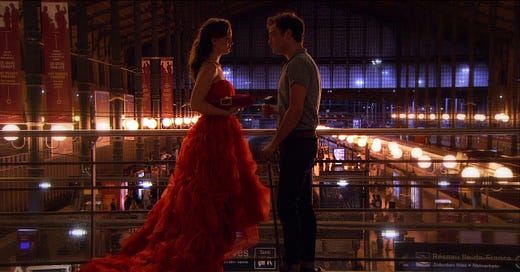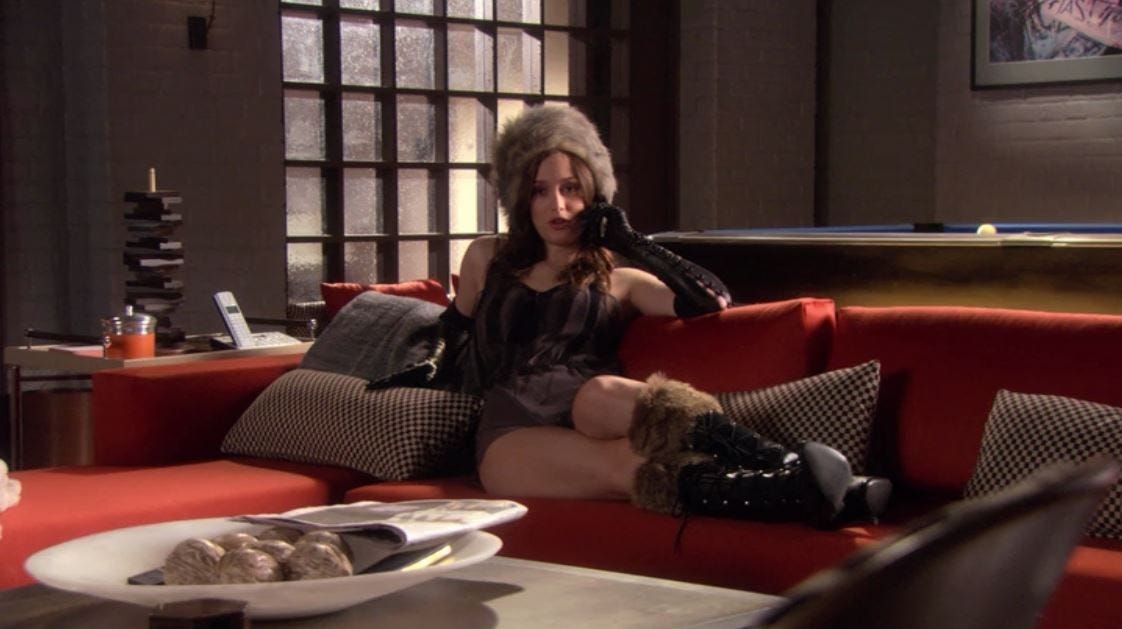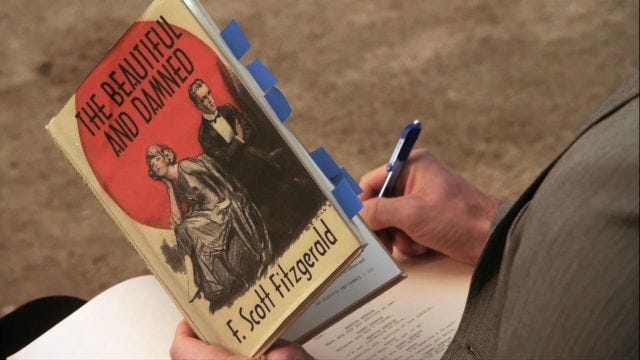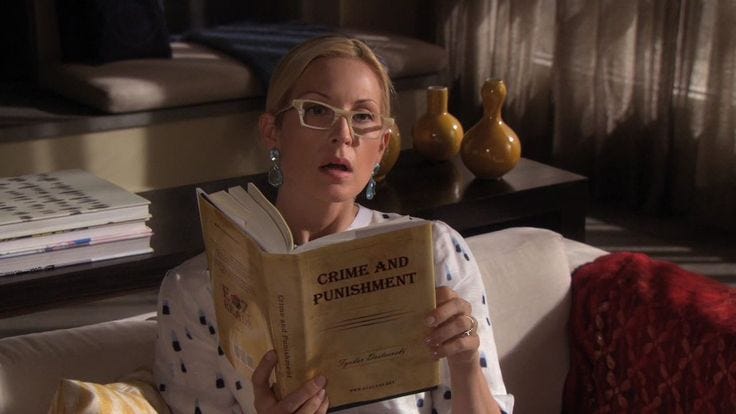My Favourite Literary References In Gossip Girl
~or a fun way to gather reading material for 2025
“Fiction is like a spider’s web, attached ever so lightly perhaps, but still attached to life at all four corners.” - Virginia Woolf
When I was a teenager, Gossip Girl was my favourite series. I watched it constantly, repeatedly, and became more than a little obsessed with many of the characters. Rewatching the show as my better-read, post-university adult self has opened my eyes to the myriad of literary references weaved seamlessly into the drama.
If you’ve ever watched the show you know that the opening scene is of Serena getting off the train at Grand Central. When, as an adult, I read The House of Mirth by Edith Wharton, I was shocked at the similarity. Here is a snippet from the opening passage of Wharton’s classic:
“Selden paused in surprise. In the afternoon rush of the Grand Central Station his eyes had been refreshed by the sight of Miss Lily Bart. It was a Monday in early September […] her desultory air perplexed him. She stood apart from the crowd, letting it drift by her to the platform or the street […] it was characteristic of her that she always roused speculation, that her simplest acts seemed the result of far-reaching intentions.”
Not only has Cecily von Ziegesar, the author of the Gossip Girl series, stolen monikers (Lily Van Der Woodsen became Lily Bass when she married Bart Bass) but the setting and societal pressures discussed in Wharton’s novel are reflected massively in the books: forced conversations and endless obligations. Lies, cheating, betrayal, and excess. Opulence and toxic relationships. High fashion and convoluted storylines.
But why did Gossip Girl cause such a stir? It wasn’t only because of the fabulous, stunning cast and plot twists but because, despite their unattainable wealth, the characters were relatable. Viewers could see parts of themselves on the screen, their own insecurities or self doubts or destructive patterns reflected back to them in Blair and Chuck’s interminable mind games or in Serena’s constant mayhem. In Nate’s weaknesses and family problems or in Dan’s yearning to ascend the social hierarchy.
The reasons Gossip Girl was so beloved are akin to the reasons we love fiction: to see something of ourselves on the page, to discover new room for empathy for our fellow human beings. To experience new worlds and to inhabit different perspectives. We are all more alike than we think and the power of Gossip Girl lay in its ability to highlight that, as unattainable as their wealth was, the elite teenagers of New York had the same desires and disappointments as we did. That is why fiction is so important - it connects us, weaves a web around seemingly dissimilar people and pushes them together. So, in no particular order, here are some of my favourite literary references in Gossip Girl.
In Season 2, Episode 6, the cast toured Yale. Whilst there Nate Archibald, who was impersonating Dan Humprehy, had a brief romantic encounter with a college girl, an English major, who asked him, “Before we go any further, as a writer, what do you think about Marquez?” When I was younger this reference went straight over my head. However, as an adult, after having read Marquez’s novels, I’m fascinated at how the show prepared an entire generation for later literary exploration with flawless, almost imperceptible, allusions to various classics.
As Thanksgiving commenced in S2, Blair complained how she was “roaming the streets like a character in a Jane Austen novel” and for Christmas, Serena bought her new boyfriend (remember Aaron Rose, the artist?) a first edition of Letters To A Young Poet by Rainer Maria Rilke.
Later, in the same season, the students are forced to stage a rendition of The Age of Innocence, the episode comically called The Age of Dissonance. I think it’s safe to say that Cecily von Ziegesar studied Wharton. Indeed, I don’t think it would be a stretch to say that she drew on her works heavily for inspiration.
By the time S3 rolled around Dan, Vanesa, Blair, and Georgina all somehow ended up at NYU. Their college reading lists were an amalgamation of various wonderful classics: Madame Bovary and Wuthering Heights are primarily mentioned as required material for their ‘Woman in Literature’ class.
Another reference I never understood as a teenager but did as an adult was when Blair, dressed in nothing but lingerie, furry boots, and a Russian Ushanka hat, waited for Chuck at his apartment. “It’s Anna Karenina. Don’t worry about it, you never read it” she said to a dumbfounded Nate who accidentally walked in. “I never do,” he replied.
We see Blair reading Gigi by Colette in Paris and Juliette reading The House of Mirth when Nate first met her at a restaurant in New York. Then there’s Serena’s emphasis on how The Beautiful and Damned is her favourite book (she brought a signed copy to the Columbia professor she was dating and was later involved in an LA movie production of the novel) and how Blair received a signed copy of This I Remember by Eleanor Roosevelt for her 20th birthday.
Even Lily, during her house arrest, is captured reading Crime and Punishment inside her multi-million dollar penthouse. Perhaps not the audience Dostoevsky imagined for his work, but art is for everyone, right?
The myriad of literary references in Gossip Girl makes one thing as clear as the character’s hand polished crystal: that literature and life are inextricable. Art indeed imitates experience and there are endless pools of fictional worlds to dive into and explore. Why read classics, one asks? I counter and say that detours through the past are essential in the discovery of new paths and an unrivalled way to spark original ideas is to read old books.
“You read something which you thought only happened to you, and you discover that it happened 100 years ago to Dostoyevsky. This is a very great liberation for the suffering, struggling person, who always thinks that he is alone. This is why art is important.” -James Baldwin









Amazing, enjoyable reading. Love it.